What is Sleep Apnea? – Fort Worth, TX
Are You Suffering From Sleep Apnea?
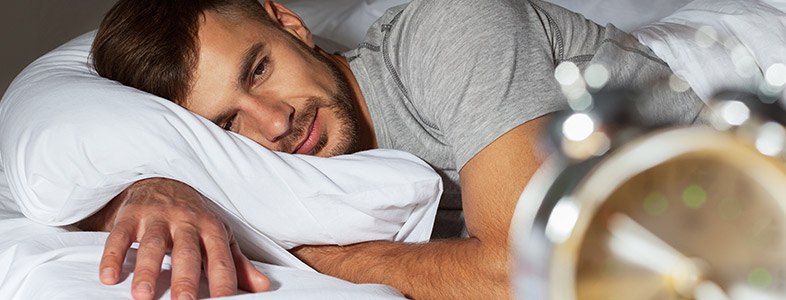
As it does every morning, your alarm goes off, and as you do every morning, you can’t hit the snooze button fast enough. No matter how much you sleep at night, it just never seems to be enough. You wake up tired, stay tired, and all you can think about is going to bed despite the fact that it doesn’t seem to actually work. What is causing this?
This kind of persistent exhaustion is a very common symptom of sleep apnea, the second most prevalent sleep disorder in the world. It’s believed to affect about 22 million Americans every night, and that number is expected to grow as time goes on. Is this the underlying reason for your sleeping issues? Read on below to learn more about sleep apnea and what can be done about it.
Why Choose Fort Worth Snoring & Sleep Center for Sleep Apnea Treatment?
- 30+ yrs. experience dedicated to snoring, sleep apnea and TMJ solutions
- Dr. Mitch Conditt has OSA and wears an oral appliance every night
- Dr. Conditt is Board Certified in dental sleep medicine
What is Sleep Apnea?
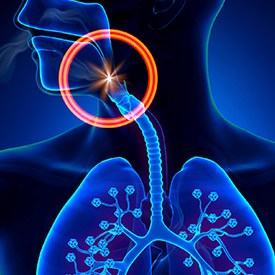
Sleep apnea is a condition where a person experiences brief but frequent stoppages in breathing while they sleep. Most of the time, this is due to the soft tissues in the mouth and throat relaxing into and blocking the airway, which is known as obstructive sleep apnea, or OSA. Another kind is called central sleep apnea, or CSA, in which the brain literally stops telling the body to breathe during sleep. Most of the time the person has no idea any of this is happening.
When these stoppages happen, the body immediately goes into panic mode and partially wakes up in order to restore normal respiration. This can happen up to 100 times an hour, and most patients don’t remember these disturbances the next morning. As a result, the sleep cycle is interrupted, again and again, preventing someone from getting the deep, restful sleep they need to feel awake and focused the next day. Most people have no idea this happens while they sleep and many have none of the restless sleep symptoms the next day. This is why so many people with sleep apnea have not been diagnosed. Some people have no symptoms other than snoring.
Sleep Apnea Symptoms
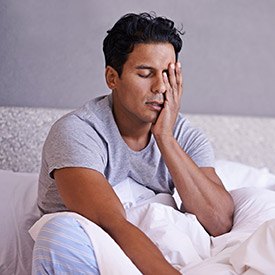
People with sleep apnea usually experience some or all of the following symptoms:
- Loud, chronic snoring
- Daytime exhaustion despite getting 7-9 hours of sleep
- Frequent headaches & sore throats in the morning
- Waking up gasping for air or out of breath
- Trouble focusing on or remembering things (“Brain fog”)
- Issues with weight gain/losing weight
- Mood swings/depression
- Sexual dysfunction
Learn More About Sleep Apnea Symptoms
Excessive Snoring
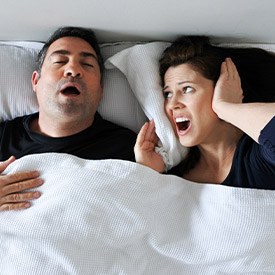
Snoring often doesn’t just affect the person doing it, but the people around them as well, leading to strained relationships and tired mornings all around. If you or a loved one snore, Dr. Conditt can provide a sleep appliance that’s guaranteed to deliver a whisper quiet night of rest. These appliances are able to work the very first night, and they can quickly increase a patient’s sleep quality, leading to a well-rested and much happier household overall.
The Dangers of Sleep Apnea
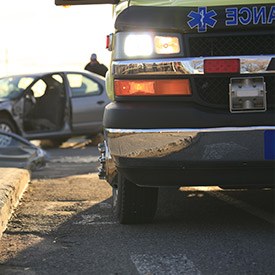
People with sleep apnea are almost always sleep deprived, and this can have dire consequences for their long-term health.
Drivers who are sleepy are almost TWICE as likely to get into a motor vehicle accident as those who are under the influence of drugs or alcohol. Job performance can easily suffer due to brain fog, and a loss of control of mood regulation can quickly put a strain on both personal and professional relationships.
Sleep apnea is also very stressful on the heart. When the breathing is stopped, the heart has to work extra hard to move oxygenated blood throughout the body, which causes blood pressure to skyrocket. This increase in blood pressure can remain for many hours even after normal breathing has been restored, basically meaning that a person develops constant hypertension, which is the leading cause of serious problems like heart attack and stroke.
What Causes Sleep Apnea?
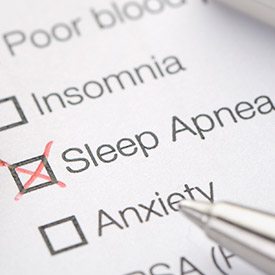
One of the biggest influences on whether or not a person has sleep apnea is the anatomy of their airway. Airways can be big, small, narrow, wide, flexible, rigid, and so on. As you can imagine, a smaller and less flexible airway is much easier to become blocked.
Issues like nasal congestion due to a deviated septum or allergies can lead to sleep apnea. And, by far, the most common preventable cause of sleep apnea is obesity. Having a large amount of tissue located around the throat can make it much easier for the airway to collapse during sleep.
Other lifestyle factors like smoking and alcohol consumption before bed can also make a person more likely to develop sleep apnea as well.
How Is Sleep Apnea Diagnosed?
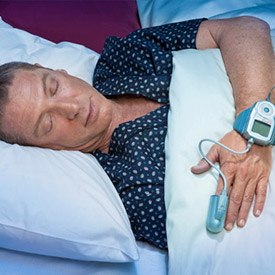
Most of the time, the breathing cessations associated with sleep apnea are first observed by a bed partner. However, in order to get a proper diagnosis, a patient must undergo what is called a sleep study.
This is a medical test where a patient sleeps in a lab or in their own bed with a takehome test. It creates a readout that a sleep doctor can use to determine whether or not a patient has sleep apnea.
For a patient who believes that they might have sleep apnea, Dr. Conditt can perform an initial exam at an appointment, and if he believes it’s necessary, he may get a patient tested with a home sleep test or in a sleep lab.
How Can Sleep Apnea Be Treated?
The most popular form of sleep apnea treatment is called CPAP therapy, in which a patient wears a facial mask to bed that is connected to an air pump. The machine keeps the airway open throughout the night by providing a steady flow of oxygen into the mouth and throat.
A more conservative method that patients tend to find more comfortable is called oral appliance therapy, in which a patient wears a specially made mouthguard to bed that slightly repositions the jaw to keep the airway unobstructed.
A newer option is Inspire®, which involves having a small device implanted just under the skin during an outpatient procedure, and once it is switched on (using your phone or a remote), it uses gentle pulses to stimulate the muscles of the upper airway. This prevents them from over-relaxing and collapsing together. Many patients like this method because they don’t have to put on a device or appliance before going to bed—better sleep only requires the push of a button.
Another method is corrective surgery, which is usually recommended only for patients whose sleep apnea is caused by a physical blockage in their airway, such as large tonsils or adenoids. Orthognathic (corrective jaw) surgery may also be an option.
When you come to see Dr. Conditt, he’ll discuss all of your treatment options and answer any questions you might have. He has the training to provide you with a custom-made oral appliance himself, as he has successfully done for many other patients as well as himself. And, if you end up using a CPAP machine and find it to be uncomfortable (as do many patients), he may be able to provide an oral appliance as a viable alternative. He can also design an oral appliance to work with a CPAP machine for combined therapy.
How We Can Help

We know that we just threw a lot of information at you, but if you remember anything from this page, know that Fort Worth Snoring & Sleep Center is ready and able to help you start getting better sleep. If you believe that you or a loved one might be suffering from sleep apnea, we invite you to schedule an appointment at our office. Dr. Mitch Conditt will give you a brief exam to see if you’re at risk for sleep apnea, and then he can get you tested for a proper diagnosis. From there, he and your sleep doctor can help you figure out the appropriate treatment. Fort Worth Snoring & Sleep Center will be with you every step of the way to make this process nice and easy.
To learn more about sleep apnea, your treatment options, or to schedule an appointment, contact us today.
Understanding the Cost of Sleep Apnea Treatment

The cost of sleep apnea treatment can vary from case to case. During your consultation, our team can share some numbers with you. We do not want you to be unduly stressed about paying for your care, so you can expect us to walk you through all of your financial options. For example, we will be happy to help you file insurance claims. We also accept several forms of payment, including cash, checks, credit cards, and CareCredit financing.
Does Dental Insurance Cover the Cost of Sleep Apnea Treatment?
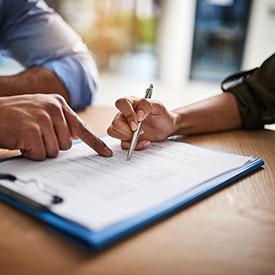
Even though Dr. Conditt is a dentist, you should not expect your dental insurance to pay for your treatment. That is simply because sleep apnea is more of a general health issue than a dental health issue. Therefore, your medical insurance is much more likely to provide coverage for our services.
Factors That Affect the Cost of Sleep Apnea Treatment

A couple of factors that might influence the cost of your sleep apnea treatment include:
- The type of treatment you receive. CPAP machines and oral appliance therapy tend to have different price points. There are also various types of oral appliances that may affect the overall cost of your care.
- Your insurance coverage. Most health policies will at least partially cover the cost of sleep apnea testing and common treatments, including oral appliance therapy. Keep in mind that you may need to seek preauthorization before your insurance will cover anything. Our team is in-network with many insurance companies, and we will be happy to help you maximize your benefits.
Treat Your Sleep Apnea Now to Improve Your Health and Save Money

Sleep apnea treatment might seem a tad on the expensive side, but it is an excellent value for several reasons:
- It can improve your health. High-quality sleep may delay or prevent the onset of some serious health conditions, including diabetes, dementia, and heart issues. Good health improves your quality of life and can reduce overall medical expenses.
- It can improve your performance at work. When you are well-rested, you are more likely to perform well at your job and take fewer sick days. Therefore, you may make more money.
- It can lower your risk of accidents. When you sleep well, you are more alert, which means you are at a lower risk of painful and expensive accidents on the road.
Making Sleep Apnea Treatment More Affordable
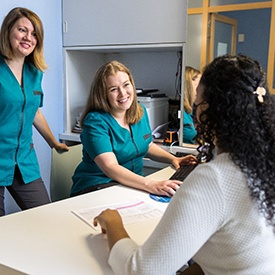
Outside of insurance, there is another provision that might make your treatment more affordable: financing. We are partnered with CareCredit, a third-party lender. The application process is easy, and most patients are quickly approved for a low-interest or no-interest payment plan that fits their budget.
Inspire Therapy
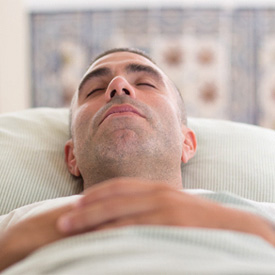
Patients struggling with sleep apnea in Fort Worth now have another option to get the rest they deserve. With Inspire therapy, there is no mask, pump, or oral appliance needed each night. Instead, a small implant is placed under the skin near your collarbone, and as you sleep, it directs a gentle pulse to the muscles and tissues of your airway to prevent them from stopping your breathing. You simply turn the device on at bedtime with a remote or your phone, sleep deeply, and turn it off in the morning. It’s really that simple and proven to help with chronic snoring, OSA, and many other symptoms associated with disordered sleep.
Sleep Apnea FAQs

Sleep apnea can have devastating consequences for your health and quality of life. Our team wants to help you get the rest you deserve! Before you book a consultation, though, you might want to learn more about sleep apnea and what to expect during the treatment process. Below, you will find answers to some FAQs. Of course, if your questions are not included here, you are more than welcome to reach out to us. We would love to speak with you!
Does Everyone Who Snores Have Sleep Apnea?
No, not everyone who snores has sleep apnea, and not everyone with sleep apnea snores. However, these two conditions do often occur together. That is because the same tissues that vibrate and cause snoring noises can actually block the airway, leading to the pauses in breathing that are characteristic of sleep apnea.
If you snore loudly and frequently, that is a sign you should ask your medical team about undergoing a sleep test.
Can I Diagnose Sleep Apnea on My Own?
Sleep apnea is not self-diagnosable. You should undergo an official sleep test to find out if you have this disorder.
However, you may be able to get a fair idea of whether you have sleep apnea on your own. You should always monitor the quality of your sleep. You may even want to keep a sleep journal that records things like how long you sleep, how you feel upon waking up, whether your partner observed any pauses in breathing, and other relevant information. You can take your journal to your primary care doctor or our team so we can determine if you need to undergo a sleep test.
You could also consider using an app or smart device to monitor your sleep. Such gadgets cannot diagnose disorders, but they can provide valuable insight into the quality of your nightly rest.
Will Oral Appliance Therapy Make CPAP Therapy Unnecessary?
CPAP therapy is the most common way to treat sleep apnea. Unfortunately, many people dislike their machine. They might even refuse to comply with their treatment! An oral appliance is an effective alternative for many such individuals.
However, there is no guarantee that an oral appliance will make your CPAP unnecessary. Some people with severe sleep apnea use both their machine and an oral appliance. The oral appliance allows them to put their CPAP on a lower setting.
Will My Sleep Apnea Go Away If I Lose Weight?
In some cases, obstructive sleep apnea occurs because extra fatty tissue is placing pressure on the airway, leading to pauses in breathing. For such individuals, weight loss may help to reduce or even eliminate sleep apnea symptoms. Often, even a modest reduction in weight is beneficial.
Of course, extra fat is not always the main cause of sleep apnea. If you have other issues that interfere with your nighttime breathing, weight loss may have little to no effect on your condition.
Does age make you more likely to have sleep apnea?
Older adults tend to have higher rates of sleep apnea compared to the general population because the muscles of the airway naturally weaken over time, and many people tend to gain weight as they age. Ongoing cardiovascular and pulmonary issues can also lead to breathing difficulties throughout the night. Sleep apnea is proven to be very detrimental to heart and brain health, which is why getting a screening and professional treatment is so important for everyone, but especially patients who are 50 and up.
Does sleep apnea affect men and women differently?
Like with many other health conditions, sleep apnea tends to present differently between men and women. While men often chronically snore and have obvious stoppages in breathing, women are more likely to experience insomnia, morning headaches, and emotional dysregulation (depression/anxiety).
Is one sleep apnea treatment proven to be better than the others?
CPAP therapy, oral appliance treatment, ENT or oral surgery procedures, and Inspire therapy are all effective ways to manage sleep apnea, so it really comes down to which treatment works best for a patient, both in terms of health and compliance. In short, the most effective treatment is the one a patient will be willing to use consistently, as this will lead to the greatest reduction in symptoms and increase in overall wellness. Discussing the day-to-day aspects of each approach is important so that a patient’s expectations are aligned with reality, and they are set up for success.
Can children have sleep apnea?
Yes, current estimates predict that about 2-3% of children in the U.S. have sleep-disordered breathing, which is similar to sleep apnea. This can stem from an underdeveloped upper airway (a smaller than normal mouth or jaw) that hampers respiration, a lip/tongue tie, excess weight, and many other causes. In addition to snoring, mouth breathing, and feeling tired, it’s important to highlight that a sleep-deprived child will often be hyper and have focus/emotional regulation issues. This is why many children diagnosed with ADHD don’t seem to respond to treatment—it’s actually a sleep problem in disguise! If your child is currently taking medication for ADHD, but problems persist, it’s highly recommended they get a sleep screening.
